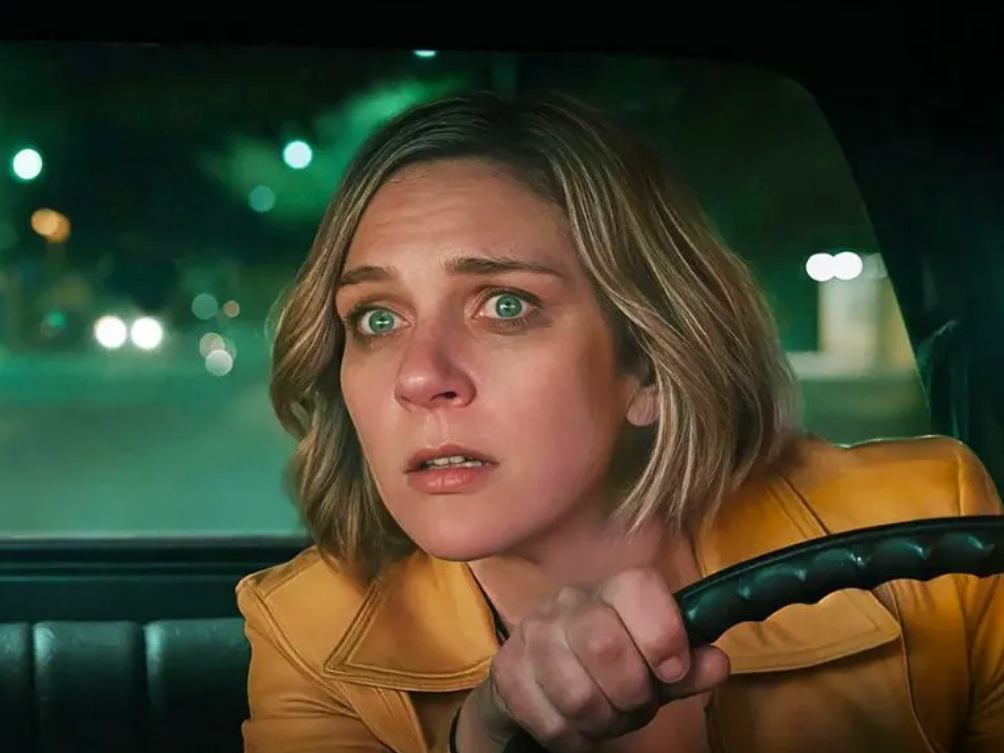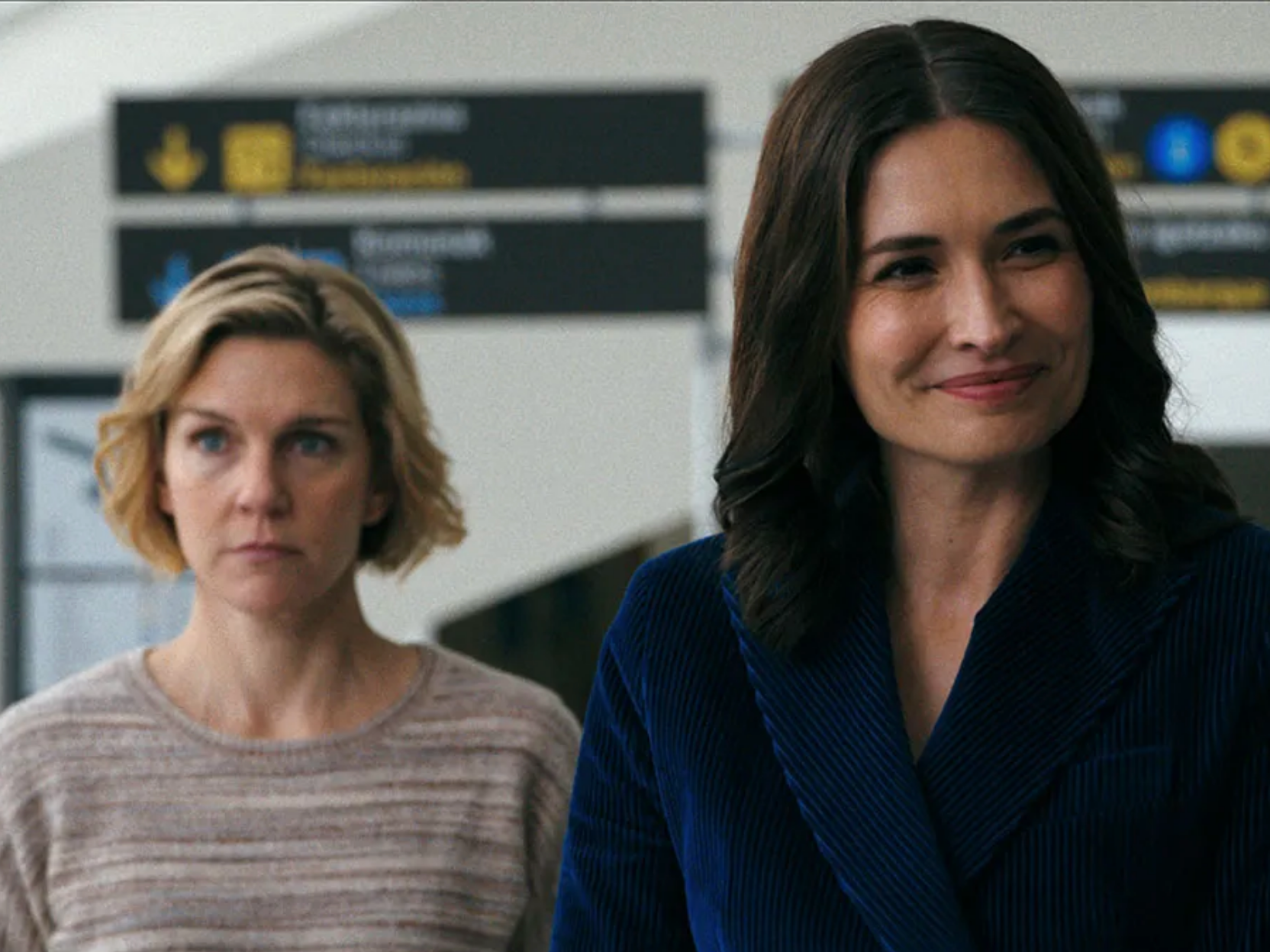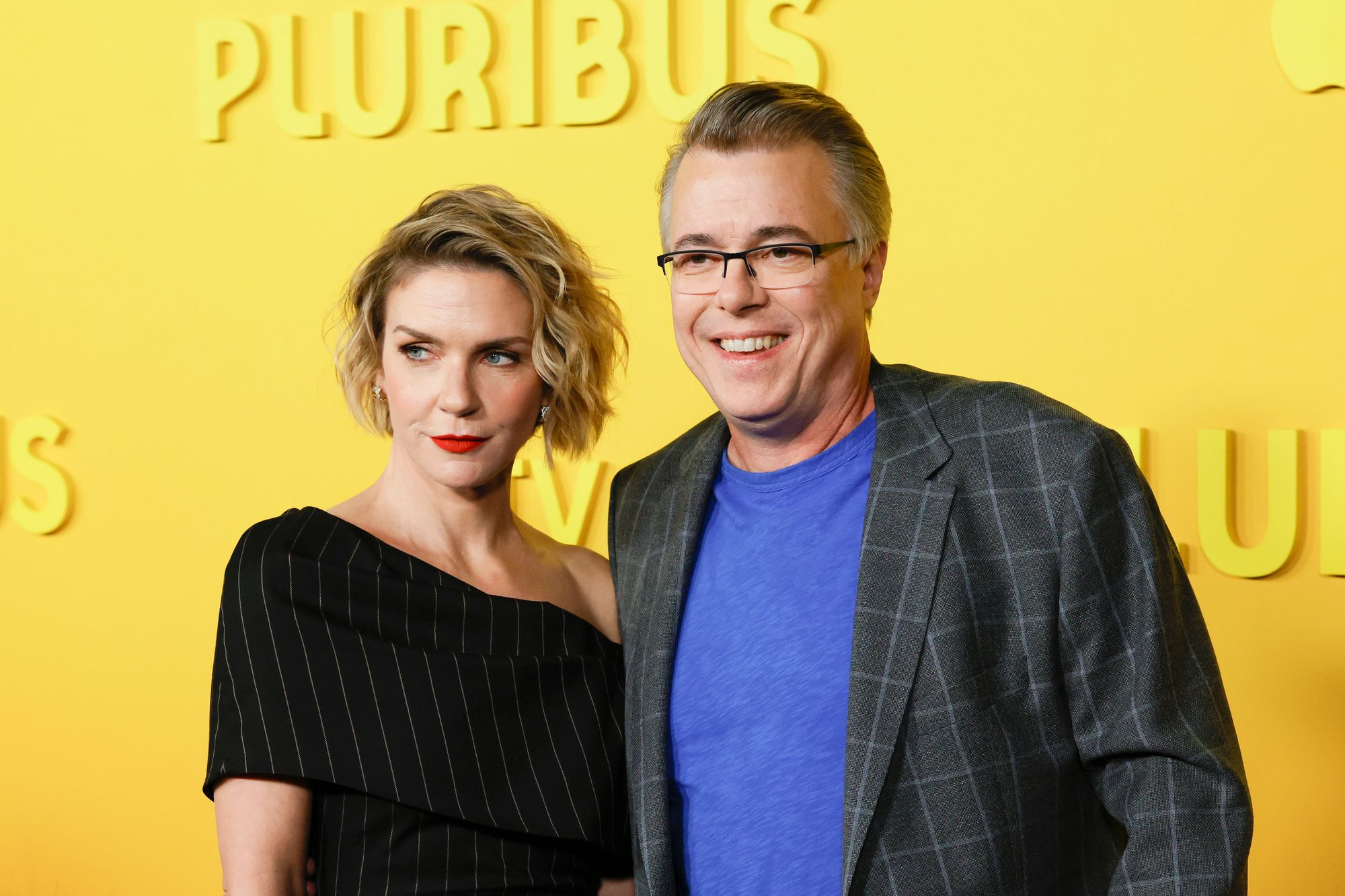If you’ve ever wondered what a post-apocalyptic series from the creator of propulsive phenomenon Breaking Bad would look like, you have your answer. It’s Apple’s Pluribus, a new series presenting TV’s most inventive global catastrophe to date: one day, in a bolt from the blue, the earth’s population get infected by an epidemic of happiness. World peace is achieved; prejudice, crime and war ended. As far as apocalypses go, this one seems rather appealing.
“I wanted the audience to think: ‘Is this good or bad?’” showrunner Vince Gilligan tells me. “There have been so many post-apocalyptic stories in the past 20 years, and I wonder if that’s because there’s something in the air. Not to get political, but it does feel like the end times are coming. It scares me. So I thought, ‘If I’m going to do a post-apocalyptic tale, how could I put a spin on it?’”
One person who falls firmly into the “apocalypse = bad” camp is Carol Sturka, played by Rhea Seehorn, best known as Kim Wexler from Gilligan’s brilliant Breaking Bad spin-off Better Call Saul. Carol is disillusioned by her success as an author of fantasy fiction, slurping martinis in between stops on a book tour she doesn’t want to be on. Then the world effectively ends. But Carol, the one person who could do with smiling more, finds she’s the only one unaffected by the virus. It’s an ironic twist worthy of an Alanis Morissette lyric.
Carol becomes civilisation’s de facto saviour – tough work considering her foes aren’t rabid zombies but pleasant-as-heck individuals who want to improve her life. Carol’s tussle is best encapsulated by a line spoken midway through the series: “Do you seriously think the world’s a better place now just because it’s peaceful?” This intriguing debate positions Pluribus (a Latin phrase meaning “out of many, one”) as the thinking person’s post-apocalyptic show. Think less The Walking Dead, more The Leftovers.
“I would like to think I would be team Carol and fight for individuality,” Seehorn says, sitting alongside her Pluribus posse, Gilligan and co-star Karolina Wydra. “Vince does such a great job of making reasonable arguments for characters’ viewpoints depending on the scene. It raises questions of topics you thought were a black-and-white issue, which is one of the things you can do with psychological sci-fi.”

Wydra, who plays the happy horde’s kindly “spokesperson” Zosia, offers an opposing view. “They believe in their cause,” she says matter-of-factly. “They’re like, ‘We know what it’s like to be you, but you don’t know what it’s like to be us... the serenity we feel is worth experiencing.’ One might feel like they’re villains for wanting Carol to experience it. But then, individuality is worth fighting for, so that could make them the villains. We had all those conversations non-stop on set.”
It’s this debate that fuels Pluribus and not, as you might imagine, the mystery behind what actually caused the outbreak. The opening episode does hint at its origin, but according to Gilligan, that’s all fans are getting. Those wanting a thorough explanation need not apply.
I wanted the audience to think: ‘Is this apocalypse good or bad?’
“That’s pretty much all you need to know. I hope people who are really into mystery-box storytelling stick with this one, but I don’t know that this is going to be a twisty-turny-type show. But we will endeavour, as always, to keep things interesting.” A second season has already been confirmed, with Gilligan envisioning four in total.
It was in the latter stages of making Better Call Saul that Gilligan dreamt up Pluribus. He originally wanted a male lead, but after seeing a ponytailed Seehorn in full swing as Wexler (a role for which she received two Emmy nominations), he decided to change tack.
“I knew from the early days that I wanted to work with Rhea again,” he says. “I could have gone off and made a TV show with all of the wonderful actors in Saul, but something about Rhea spoke to me. I just had a feeling it would be great to create a show for her.”
For Seehorn, reuniting with Gilligan in Albuquerque – the sun-soaked setting of Better Call Saul – was the easiest yes of her career, but she admits to finding the prospect “daunting”, and it’s no wonder. In Saul, she had several hardy scene partners – Bob Odenkirk, Patrick Fabian, Michael McKean – but much of her time filming the early stages of Pluribus was spent alone. One memorable episode, in which Carol necks vodka and binges boxsets of The Golden Girls, unfolds like a one-woman play.

“It’s the challenge you would hope for,” she says. “Knowing Vince wrote this for me was a dream come true. There is so much love in his fanbase, and it’s terrifying to follow it up. You never know how people are gonna respond. And we hope this show brings in another group of fans. It was fun doing Comic-Con in San Diego and meeting people who were so excited by the sci-fi element.”
Pluribus also provided Gilligan with a creative departure: the series is led by a force for good. It’s been a while since the man behind Breaking Bad's meth-creating tyrant Walter White (Bryan Cranston) and crooked lawyer Saul Goodman (Odenkirk) created a protagonist you could say that about. “The thing that got me most excited about Pluribus was writing a hero again,” he says. “I realised it had been 23 years since I wrote hero characters – Agent Mulder and Agent Scully [Gilligan wrote 30 episodes of The X-Files]. After a while of that, I thought it’d be kinda fun to do an anti-hero, and then Walter White comes along, and then Walter begets Jimmy McGill [Goodman’s real name]. And I’ve been doing that for 20 years now! I love those characters and those actors, but then I realised the real world isn’t getting any nicer and I was ready to write a hero again.”
I knew from the early days of ‘Better Call Saul’ that I wanted to work with Rhea Seehorn again
You might think seven years writing on seminal Nineties series The X-Files, and then moulding the Breaking Bad universe into a cultural sensation, would make Gilligan satisfied with his lot. But these victories have only gone a small way in aiding him in his personal quest for happiness, which he says he’s been chasing his whole life. “I think about it a lot, inordinately, and then you get to a certain age and think: ‘Is it the be-all and end-all? Is it so bad to not be happy?’ I feel like happy people don’t accomplish much.”
So, is there a lot of Gilligan in Carol? “Oh, a lot. I’m kind of a curmudgeon. But I want to point out that I love my fans. I love them. I thought while watching the first episode back that it would be easy to think, ‘If Vince has put any of himself in this thing, does he hate his fans?’ Because Carol’s really kind to them, face-to-face, and then badmouths her work. It’s a funny relationship if you’re lucky enough to create something people dig. You’re scared of losing it.”

Gilligan doesn’t need to worry. Pluribus might not be destined to hit the thrilling heights of Breaking Bad, but it stands out from the glut of overwritten shows designed to please algorithms and entertain people while they scroll on their phones. It’s a televisual breath of fresh air; an unhurried, rare bird of a show – a certain cult hit-in-waiting – which proves that high-concept entertainment can be dialled down a tone.
“My wife and I don’t have any kids, but these shows are my legacy, such as I’ll ever have,” says Gilligan, a modest smile on his face. “I love the idea of people watching them when I’m long gone, just like I enjoy The Twilight Zone. If we can create something that people want to rewatch, that would be my idea of heaven.”
‘Pluribus’ airs Fridays on Apple TV+







